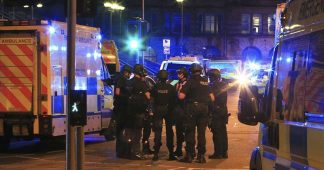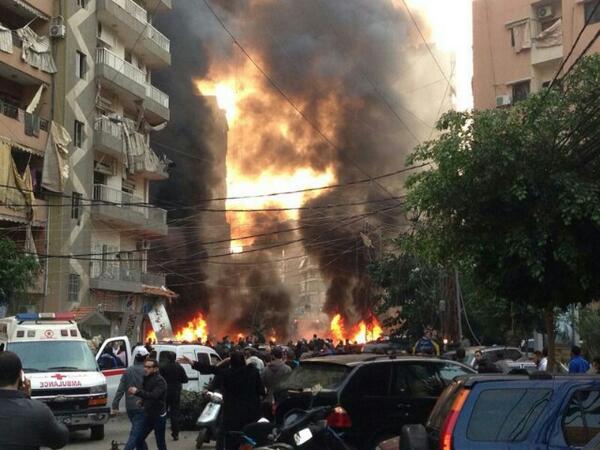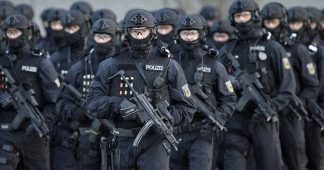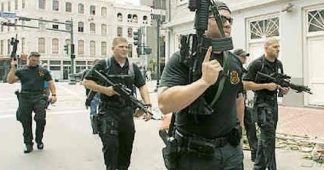By Robert Stevens
Evidence continues to mount that the British government and intelligence agencies had intimate and detailed knowledge of the terrorist connections of Salman Abedi, the Manchester suicide bomber.
Abedi detonated a shrapnel-laden bomb at Manchester Arena on May 22, killing 22 concert-goers, including eight children, and wounding 116.
On Saturday, the New York Times reported that Abedi was in contact with a Libyan Islamic State (IS) battalion, members of which were reportedly involved in planning the 2015 Bataclan nightclub attack in Paris.
Citing an anonymous retired European intelligence official, the Times reported that “Mr. Abedi met with operatives of the Katibat al-Battar al-Libi, a core Islamic State unit that was headquartered in Syria before some of its members dispersed to Libya.” Abedi met with Battar members in Libya, in both Tripoli and Sabratha.
“Originally made up of Libyans who had gone to Syria to fight in the civil war” the Times reports, “the unit became a magnet for French and Belgian foreign fighters, and several were dispatched to carry out attacks abroad. Some of the terrorist group’s most devastating hits in Europe, including the coordinated attack in Paris in 2015, were shaped by alumni of the brigade.”
According to the retired official, Abedi kept up contact with Battar members after returning to Manchester.
The same intelligence source told the New York Times that when Abedi was in Britain, “the contacts would sometimes happen by phone… If the content of the call was sensitive, Mr. Abedi used phones that were disposable, or dispatches were sent from Libya by his contacts to his ‘friend’—living in Germany or Belgium—who then sent it to Mr. Abedi in Britain…”
The Battar brigade was well known to the British intelligence community. A former counter-terrorism official from Britain’s GCHQ told the Times the Battar brigade were “seasoned veterans of Iraq and Afghanistan,” who were “the most hard-core, the most violent—the ones always willing to go to extremes when others were not.”
A “senior US intelligence official” confirmed details provided by the European intelligence source, the Times reported.
That Abedi was part of a sophisticated terror network is now beyond dispute. The Mail on Sunday revealed yesterday that the explosive device used in the Manchester attack was “highly similar” to bombs used by Islamic State in the 2015 Paris attacks “and may even have been designed by the same person.”
Unnamed security sources “challenged the suggestion by Greater Manchester Police that pop concert suicide bomber Salman Abedi, 22, had largely acted alone,” the Mail reports.
Last Tuesday, Detective Chief Superintendent Russ Jackson of the north-west counter-terrorism unit issued a statement claiming that “what is becoming apparent is that many of [Abedi’s] movements and actions have been carried out alone during the four days from him landing in the country and committing this awful attack,” while Ian Hopkins, the chief constable of Greater Manchester Police, said Abedi was only known to them over “relatively minor matters” including theft and a minor assault.
The security source told the Mail, “While Abedi carried the device into Manchester Arena, he certainly didn’t design the bomb and more than likely he didn’t even put it together. Rather, there was somebody with significant bomb making experience behind Abedi, as there was behind the three suicide bombers who blew themselves up outside the Stade de France in Paris in November 2015. In security jargon, the fingerprints on the Manchester and Paris devices are the same.”
Meanwhile, the BBC revealed that in March—just two months before the Manchester attack—Abedi twice visited convicted terrorist Abdal Raouf Abdallah at Altcourse Prison in Merseyside, England, which would have been immediately reported to MI5.
Abdallah was sentenced to nine years and six months imprisonment for preparation, commission or assisting acts of terrorism and funding terrorism—of which he was to serve five-and-a-half years in custody and four years on license. He fought in Libya in 2011 against Colonel Muammar Gaddafi’s regime and was injured, leaving him paralysed from the waist down. Back in Manchester, he attempted to assist four men—including his brother Mohammed, Stephen Mustafa Gray and Raymond Matimba—to reach Syria to fight in the US/UK-led proxy war against Assad.
Mustafa Gray was unable to reach Syria and was twice turned back from Turkey. Sentenced at the same time as Abdallah, he was a former gunner in No. 2 Squadron of the RAF Regiment and served in Iraq in 2004 before converting to Islam. Abdallah and Gray both lived in the Moss Side district of Manchester, just over a mile from Abedi’s home in the Whalley Range district.
The parents of the Abdallah brothers, like Abedi’s, were opponents of the Gaddafi regime. Abdal Abdallah travelled to Libya in 2010 on a gap year. When the imperialist backed operation against Gaddafi began, although still a teenager, he was “given a key role in his platoon,” according to the BBC. “Abdallah and his brother joined one of the most important rebel Islamist groups—the 17th February Martyr’s Brigade.”
The Abdallah brothers and their fellow jihadists worked so closely with the imperialist powers in Libya that Abdal Abdallah “communicated with NATO personnel to ensure they were not accidentally bombed,” the BBC revealed.
Salman Abedi’s parents were members of the Libyan Islamic Fighting Group (LIFG) and his brother reportedly became a supporter of Islamic State (ISIS). The Abedis were relocated to south Manchester after fleeing Libya in 1991. The British government, under then Home Secretary Theresa May, lifted counter-terrorism control orders on the Abedis so they could return to Libya in 2011.
News of Abedi’s prison visits to a convicted terrorist was buried by the BBC. The information appeared in an article reporting that Greater Manchester Police had located a car they say may be “significant” to their investigation. However, the BBC’s home affairs correspondent Danny Shaw noted in his article that anyone visiting a prisoner in the UK must go through “a major logistical and security exercise.”
Visiting one of the 150 inmates convicted of terrorism in the UK is even more difficult. Shaw wrote, “These visits have to be approved by counter-terrorism officers, who can prevent them if they have concerns.”
He adds, “Salman Abedi, however, was allowed to go ahead with his visit, a decision which is likely to be scrutinised as part of a review into the handling of his case.”
“[I]t’s understood Abedi was closely monitored when he met Abdal Raouf Abdallah…”
Abedi arrived back in Manchester on May 18 after another visit to Libya. He committed his attack four days later











